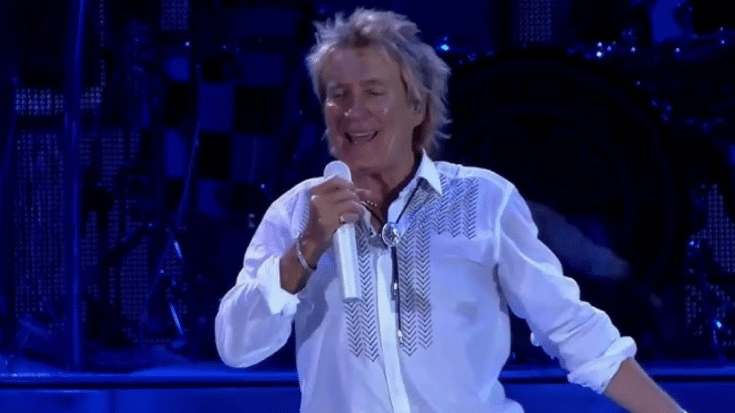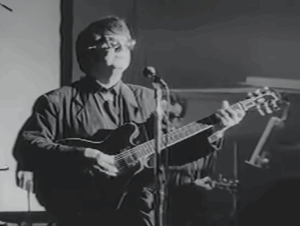10 Classic Rock Love Songs That Are Actually Creepy

via PETRIDISGEORGE / YouTube
Sometimes what’s intended as a soulful serenade can strike a very different chord. What we once hummed along to, assuming it’s nothing but a sweet love song, can reveal a darker side upon closer listening. Let’s delve into some classic rock tracks that, while catchy, harbor themes more sinister than just simple love and romance. Here are ten classic rock songs that might just change their tune for you once you tune into the lyrics.
The Police – “Every Breath You Take”
This song is often mistaken for a romantic ballad, but when you listen closely, the lyrics reveal something more concerning. Sting, the lead vocalist, describes an obsessive form of watching and monitoring someone’s movements — “every step you take, every move you make, I’ll be watching you.” Initially inspired by the breakdown of his marriage, the song reflects more the feelings of surveillance than those of healthy affection. Its catchy melody helps disguise the deeper tale of possessiveness and surveillance, often leaving listeners misunderstanding its core message.
The Beatles – “Run for Your Life”
At first glance, this Beatles’ classic off the “Rubber Soul” album could be just another peppy tune from the Fab Four. However, the lyrics, “You better run for your life if you can, little girl, hide your head in the sand little girl,” speak to a much darker theme. John Lennon later expressed regret about the sinister, threatening tone towards a woman outlined in the song. Initially influenced by an Elvis song, it starkly contrasts with the typical love-themed songs, adding a touch of irony to its upbeat rhythm.
Rod Stewart – “Tonight’s The Night”
Rod Stewart’s husky voice might charm many but paying a bit more attention to the lyrics of “Tonight’s The Night” reveals a narrative pushing boundaries uncomfortably. The lines “you don’t have to say you love me… just be close at hand” hint at an urgency and insistence that may not be entirely consensual. This song, while draped in the allure of romance, pushes the envelope by suggesting scenarios where permission and willingness are murky, wrapped in the cloak of seduction and persistence.
The Rolling Stones – “Under My Thumb”
“Under My Thumb” tells of a power shift between the singer and a woman, where the man finally has control. The lyrics, which describe the woman as someone who “talks when she’s spoken to,” dot the song with a troubling view on relationships, highlighting dominance rather than partnership. The catchy tune and energetic vibes of The Rolling Stones almost mask the underlying theme of control and manipulation that the lyrics point to, presenting a jarring contrast between the beat and the message.
The Knack – “My Sharona”
With an infectious beat that can get anyone on their feet, “My Sharona” is an iconic track from the late ‘70s. However, the driving beat hides the overtly sexual overtones and the obsession detailed in the lyrics. Described as irresistible and provocative, Sharona is the song’s focal point, but the way she is portrayed wavers worryingly close to objectification. The relentless pace of the music mirrors the obsessive nature of the lyrics, creating a whirlwind that blurs the lines between admiration and obsession.
Neil Diamond – “Girl, You’ll Be A Woman Soon”
This song, covered famously by Urge Overkill in the movie “Pulp Fiction,” might sound like a tender transition into womanhood at first. However, Neil Diamond’s original rendition hints at a rush towards an adult relationship that may not be fully reciprocated. The lines “soon you’ll need a man” not only presume that womanhood equates to needing a man but also push towards a maturity that the subject may not be ready for. It’s a song that rushes youth, disguising it as inevitability rather than a natural progression.
The Beatles – “Norwegian Wood (This Bird Has Flown)”
“Norwegian Wood,” one of The Beatles’ more melodious tunes, cleverly uses ambiguity and storytelling. Yet, beneath the calming strum of the sitar and the gentle melody, the song tells a tale of a failed romantic encounter that possibly ends in the protagonist setting fire to the lady’s room. The chilling last line juxtaposes the otherwise light tune, revealing a story of rejection and, perhaps, revenge. This song hands listeners a puzzle wrapped in delightful music, challenging them to discern its true essence.
Gary Puckett & The Union Gap – “Young Girl”
Gary Puckett sings passionately about the conflict of emotions he feels when he finds himself drawn to a much younger girl. The song is filled with powerful vocals and a memorable melody, urging the young girl to leave before things go too far. Although it seems to address the inappropriateness of the situation, it uncomfortably highlights the age disparity and the moral conflict it entails. The gravity of the situation leaps out through the lyrics, making it a controversial piece that resonates differently in modern times.
Ringo Starr – “You’re Sixteen”
This song cheerfully celebrates young love, but its lyrics praising a young girl’s beauty and charm may raise eyebrows today more than they did in the past. “You’re sixteen, you’re beautiful, and you’re mine,” croons Ringo Starr, possibly ignoring the implications of such an age-specific adoration. While undoubtedly catchy, the song’s content has aged into controversy, reflecting a bygone era’s norms that feel out of place in today’s context.
Elvis Presley – “A Little Less Conversation”
Elvis, the king of rock ‘n’ roll, delivers a spirited performance in “A Little Less Conversation”. While the tune demands a little less talk and a lot more action, examining the lyrics reveals a theme of impatience and urgency in romantic engagement. The push for physical closeness over conversation can be perceived as pressuring, showcasing a dynamic where in-depth communication takes a backseat to physical interaction. It’s a lively track that captures the style of its time but carries nuances that might not align with contemporary views on consent and mutual respect.























